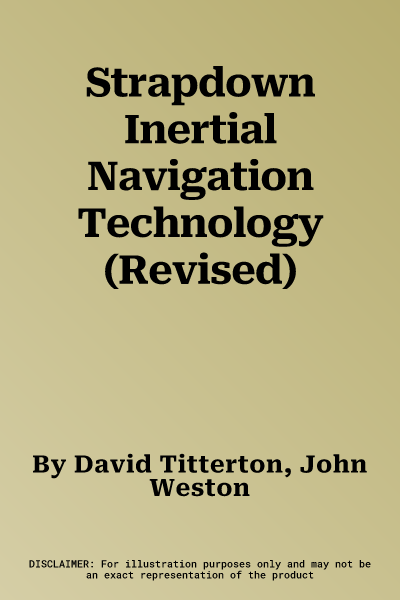David Titterton
(Author)Strapdown Inertial Navigation Technology (Revised)Hardcover - Revised, 21 January 2005

Qty
1
Turbo
Ships in 2 - 3 days
Only 2 left
Free Delivery
Cash on Delivery
15 Days
Free Returns
Secure Checkout

Part of Series
Radar, Sonar and Navigation
Part of Series
Iee Radar, Sonar, Navigation, and Avionics
Part of Series
Electromagnetics and Radar
Print Length
576 pages
Language
English
Publisher
Institution of Engineering & Technology
Date Published
21 Jan 2005
ISBN-10
0863413587
ISBN-13
9780863413582
Description
Product Details
Authors:
Book Edition:
Revised
Book Format:
Hardcover
Country of Origin:
GB
Date Published:
21 January 2005
Dimensions:
23.62 x
16 x
3.56 cm
ISBN-10:
0863413587
ISBN-13:
9780863413582
Language:
English
Location:
Stevenage
Pages:
576
Publisher:
Series:
Weight:
979.76 gm